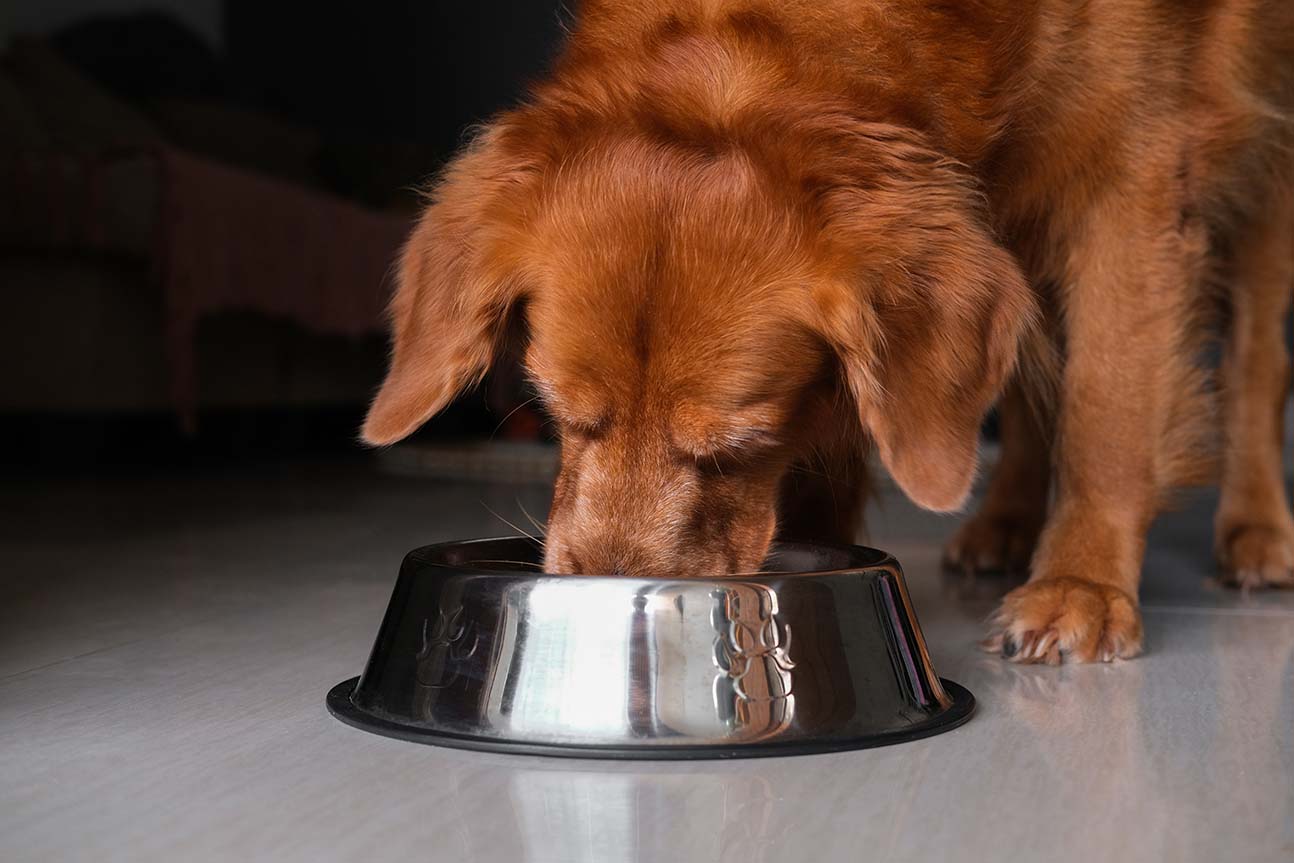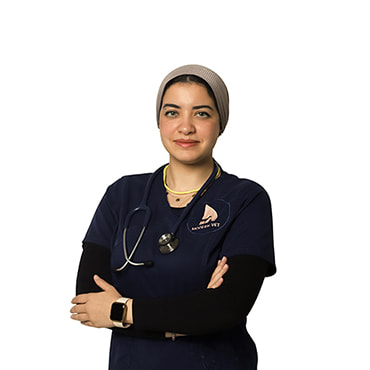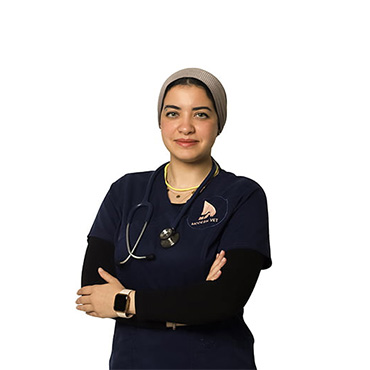Reviewed by Dr. Sarah Yosry
Updated on 25/04/2025
Reading time 4 min.
Overview
Severity: Low
Life stage: All
A well-balanced and nutritious diet forms the core of a happy and healthy dog. Dogs, much like humans, require the appropriate combination of nutrients to maintain their growth, immune system, level of energy, and overall health. Whether you are a new dog owner or simply wanting to optimize your pet’s existing nutrition, this guide contains everything you need to understand in order to feed your beloved pet. Based on expert advice from professionals in the various vet clinic Dubai centers and animal healthcare professionals, you will be taught how to keep your dog in the best health condition in every aspect of their life.
Why Diet Is Important for Dogs
A pet’s diet touches every aspect of their health, from the condition of their coat and level of energy to their immune system and digestive health. These health complications may arise if the pet eats poorly, including obesity, allergies, joint diseases, and behavioral issues. For this reason, it is essential to consult a vet near me or a reputable veterinary clinic Dubai in order to find the best-suited feeding schedule.
Important functions of a healthy diet:
• Has a healthy weight: An appropriate diet according to your dog’s size, breed, and level of exercise ensures that it is neither underfed nor overfed, both of which can cause severe health issues.
• Supports strong muscles and bones: Proper protein, calcium, and other essential nutrients are necessary for musculoskeletal health, particularly in growing puppies and senior dogs.
• Aids in the functioning of the brain and heart: Omega fatty acids and taurine support cognitive functions and cardiovascular wellness.
• Boosts immunity: Vitamins, minerals, and antioxidants support your dog’s immune system in fighting off infection and remaining disease-resistant.
• Improves skin and coat health: A shiny coat and soft skin are usually the earliest observable indicators of a well-nourished diet that is well supplied with essential fatty acids and vitamins.
Components of a Healthy Dog Diet
1. High-Quality Protein
Our dogs are meat eaters by nature and need premium animal-based protein. Protein is essential for muscle growth and repair as well as hormone and enzyme manufacture. Choose foods in which actual meat (such as beef, lamb, or chicken) is the primary listing. Fish and eggs are also quality protein. Steer clear of unspecified meat by-products or meals which are poorly described.
2. Healthy Fats
Fats are a dense form of energy and are critical for cell maintenance and nutrient utilization. Omega-3 and Omega-6 fatty acids are important in that they maintain skin and coat health, brain health, and inflammation. Sources include salmon oil, flaxseed oil, chicken fat, and sunflower oil. Make sure your dog gets the correct balance among these fats for best health.
3. Carbohydrates
Carbohydrates supply fiber for digestion and energy. Opt for slow-burning carbohydrates such as oatmeal, barley, sweet potatoes, and brown rice that digest slowly to avoid spiking blood sugars. Steer clear of cost-saving fillers like wheat, soy, and corn, which are less digestible to dogs and may lead to sensitivities or allergies.
4. Fiber
Fiber aids in digestion and avoids both diarrhea and constipation. A combination of soluble and insoluble fiber in vegetables, fruit, and whole grains keeps your dog’s digestion in top working condition. Pumpkin, carrots, peas, and beet pulp are all terrific sources.
5. Vitamins and minerals
These are critical to immune system function, bone health, and metabolism. These essential vitamins are A, D, E, and B-complex, while calcium, phosphorus, zinc, and iron are minerals that are utilized in bodily function and growth. These are frequently fortified in commercial pet foods, yet talk to your pet clinic if there are any individual requirements specific to your dog.
6. Water
At all times, fresh water is to be made available. Dogs that are active or on dry kibble diets need hydration. Dehydration causes fatigue, urinary tract issues, and digestive problems, so encourage water intake as much as possible and watch for symptoms of dehydration.
Types of Dog Food
1. Dry Kibble
The most convenient and widely used dog food is kibble, which also benefits oral health by lessening tartar formation. It also comes in varying quality. Opt for kibble made of high-meat ingredients, low in fillers, and using natural preservatives. Steer clear of artificial colors and flavorings.
2. Wet Food
Wet or canned foods tend to be moist and may be better tolerated by finicky eaters. It is suitable for dogs requiring increased hydration or dogs that find it hard to chew due to dental problems. It is, however, pricier and requires refrigeration after opening.
3. Raw Diet
Also called the BARF (Biologically Appropriate Raw Food) diet, it consists of raw meat, bones, vegetables, and fruit. Some owners claim the benefits of improved coat and increased energy, though raw diets present threats in terms of bacterial contamination and nutritional imbalance if inappropriately prepared. Always seek advice from a veterinary clinic before beginning a raw diet.
4. Home-cooked meals
Preparing meals in the home environment gives full control over ingredients, which is a safe choice for dogs that suffer from allergies or sensitivities. An effort in careful planning, though, is needed to provide nutritional balance. Collaborate closely with a professional near me veterinarian to develop well-balanced meals and prevent deficiency.
Feeding Guidelines by Life Stage
Puppies
Puppies require more protein, fat, and calories to maintain their growing and developmental needs. They also need DHA for vision and brain growth. Feed them 3–4 times a day using puppy-formulated food. Don’t overfeed them, which can result in excess growth and joint problems later in life.
Adults
Adult dogs require a well-balanced maintenance nutrition that is moderate in protein and fat. Portioning and regular feedings are important to avoid obesity. Feed according to your dog’s activity level, breed, and health status. Some active breeds may need additional calorie intake, while less active dogs can use weight-control formulas.
Seniors
Senior dogs may find it beneficial to eat lower-calorie diets that are fortified with joint support and easy-to-digest ingredients. Glucosamine, chondroitin, and antioxidants are typical additions. Some dogs will also have medical problems that necessitate special dietary modifications, and it is advisable to talk to your clinic near me and choose the right senior formulas.
Special Diets and Allergies
Dogs, like humans, can have food allergies or sensitivities. Common culprits include beef, dairy, wheat, chicken, and soy. Identifying food allergies usually requires an elimination diet under veterinary supervision.
Symptoms of Food Allergies:
• Itchy skin and paws
• Recurring ear infections*
• Gastrointestinal disturbances such as vomiting or diarrhea
• Chronic licking, chewing or scratching
Once it is diagnosed, allergies can usually be managed by a limited ingredient or hypoallergenic diet. Speak to your veterinary professional to perform allergy testing or elimination trials. Hydrolyzed protein diets are also offered by the veterinary clinic and can assist dogs that experience severe reactions.
Conclusion
Giving your dog a high-quality, well-balanced diet is one of the best actions you can take to ensure a healthy and happy life. From selecting the appropriate ingredients to portion control, nutrition is key to your pet’s well-being.
If you are unsure of your dog’s present diet or wish for a professional evaluation, call Modern Vet, the top-rated vet clinic that pet owners in Dubai rely on. As a top-rated clinic, Modern Vet provides individualized nutrition consults, wellness exams, and dietary plans developed to meet your dog’s requirements.
Modern Vet is not only a pet clinic—it’s the animal hospital where your dog receives complete care in one location. If you are looking for a “vet clinic near me” or need professional advice on pet nutrition, you’ve come to the right place.
Don’t leave your pet’s health to fate. Schedule a consultation with Modern Vet—your professional veterinary clinic Dubai and full-service vet clinic today!
Share this, choose your platform!
Writen by
Dr.Sarah Yosry
DVM
A product of a rich Australian/Egyptian heritage, Dr. Sarah Yosry stands as a testament to the union of diverse cultures and a shared love for animals.



